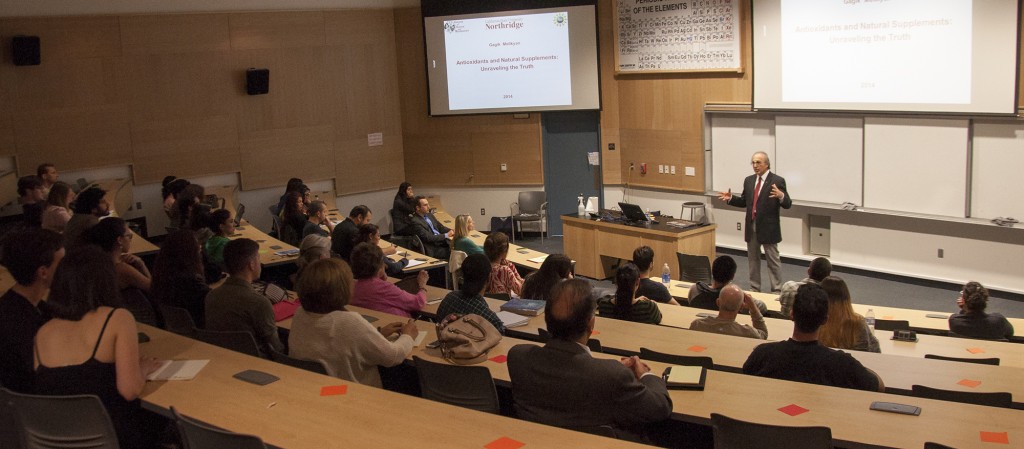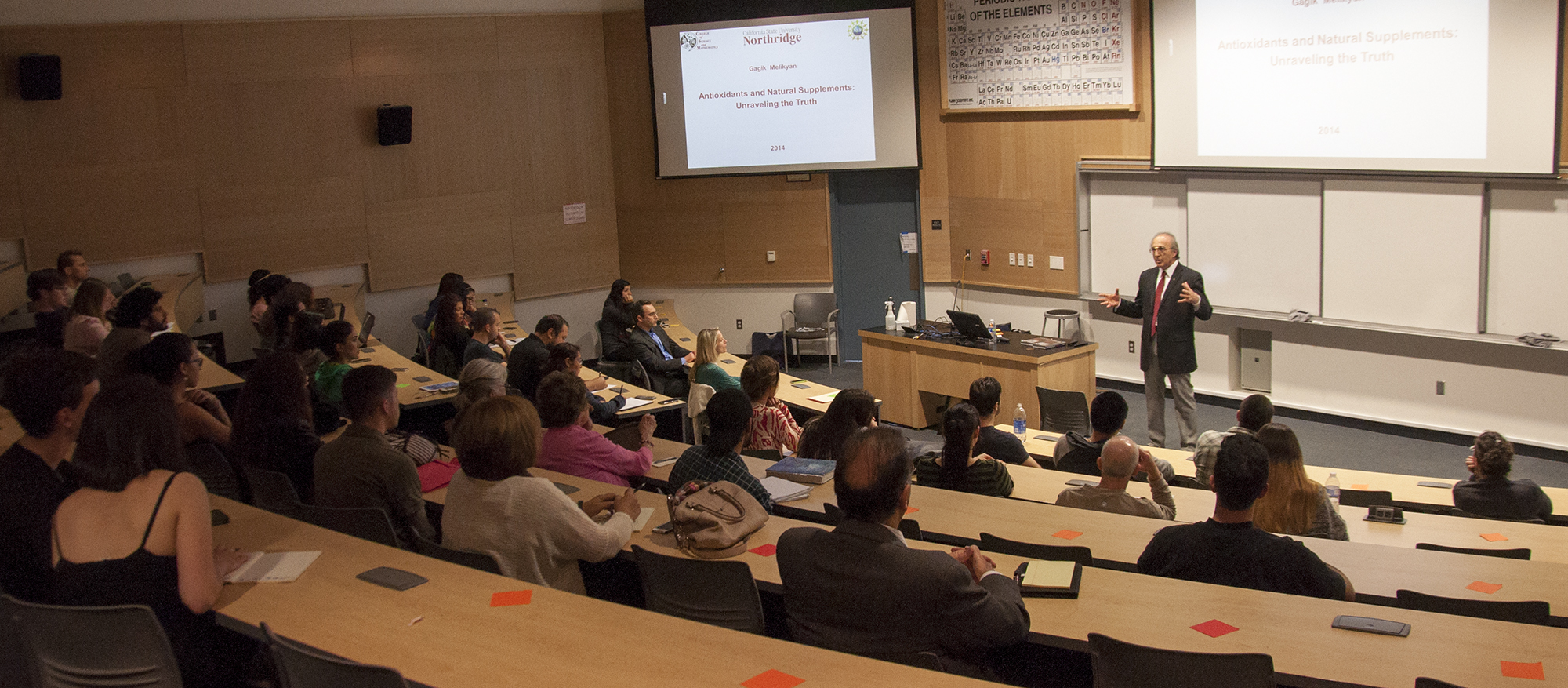
A professor of chemistry and biochemistry from California State University, Northridge came to Pierce College on Friday, April 25 to speak on the dangers of antioxidants and natural supplements.
Gagik Melikyan has been fighting for the protection of the American public against companies that try to pass off dangerous compounds as medicine. He has a Ph. D of science, has written an award-winning book, and educated an entire generation of chemists and biologists.
“Natural supplements are sold to the public with various claims,” Melikyan said. “There has to be an established need. The impact needs to be measurable.”
Supplements are often sold under the guise of preventing illness, but taking them when they aren’t needed can cause damage to the body, according to Melikyan.
Even things like green tea and red wine that are often considered healthy turn out to be varying degrees of unhealthy to ingest too much of.
Red wine contains resveratrol, a compound touted to extend your life. There is, however, no proven evidence that shows that it can do this.
“To me, it’s just a betrayal,” Melikyan said, shaking his head.
Resveratrol is dangerous on a few levels. Melikyan points out that it is an estrogenic compound and a potential carcinogen because it’s status as a phenolic compound.
An overabundance of estrogen can cause breast and cervical cancer in women. Too much estrogen can affect men negatively as well, causing testicular cancer and other medical issues. This is on top of the already carcinogenic potential of resveratrol.
“This is the only body we have,” Melikyan said. “Nobody will replace it.”
This is only the start of it all. Supplements, if taken unnecessarily, can also cause problems. An overabundance of any specific chemical in the body, even so-called good ones, can be harmful and throw the chemistry out of balance.
Companies have taken an interest in pushing supplements because they are easy to create and sell, according to Melikyan.
“Why are companies interested in supplements? It’s difficult to develop drugs,” Melikyan said.
Drugs need to go through a battery of tests and approvals over a period of 10-15 years, which amounts to millions or billions of dollars spent on one drug.
Supplements, however, get away with being advertised as “preventive” and therefore aren’t classified the same. They can be approved within several months, and don’t have an efficiency check from the FDA — only a toxicity check, according to Melikyan.
These all lead to supplements being pushed onto the public that could possibly be dangerous, especially if people are uninformed.
Corinne Browne, a Pierce student who attended the meeting, said she has been taking supplements for a long time and wanted to see what he had to say.
“I find it interesting and I definitely feel like not taking resveratrol or green tea, because he’s obviously done research on that,” Browne said. “If something is bad for me, I want to know.”
Veronica Liverato, another Pierce student, is currently studying computer applications, and has a culinary arts degree. She said that she now knows moderation is necessary, depending on what is ingested — even if it is natural.
“I’m always interested in nutrition and food,” Liverato said. “I mean, I drink green tea. That was pretty mind-boggling.”




